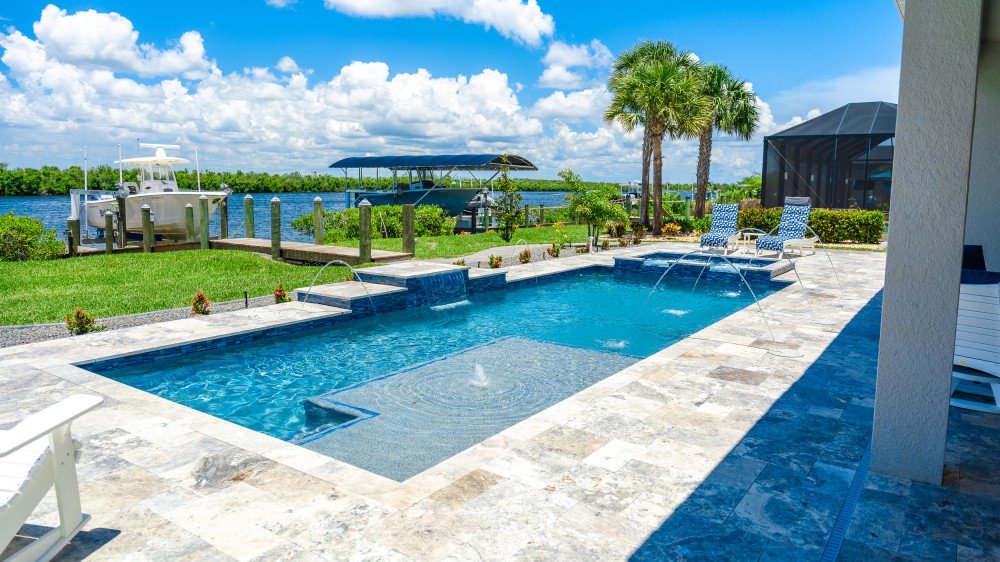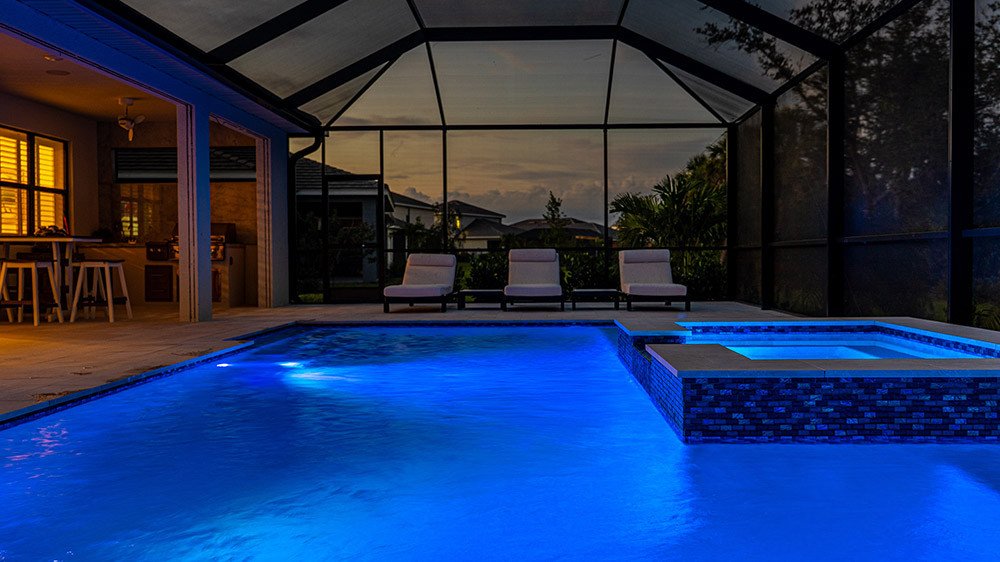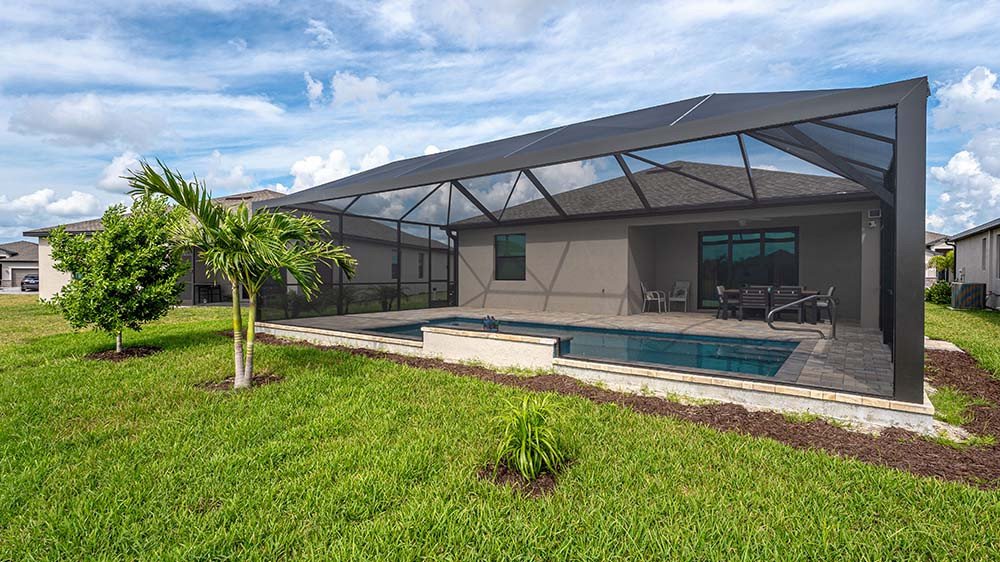
When designing a pool deck with your pool builder / pool contractor, one of the most important decisions you'll make is choosing the right type of paver. Two of the most popular options are concrete pavers and natural stone pavers like travertine, marble, and limestone. Each comes with its own set of benefits and trade-offs, so let’s dive into the key differences to help you decide which is best for your poolside paradise.
Concrete Pavers
Pros:
- Cost-Effective: Concrete pavers are generally more affordable than natural stone, making them ideal for homeowners working with a tighter budget.
- Variety of Styles: Available in a wide range of colors, shapes, and patterns. They can even mimic the look of natural stone.
- Durability: Well-made concrete pavers are strong and can handle heavy foot traffic and pool furniture.
- Consistent Sizing: Manufactured to exact specifications, which makes installation easier and more uniform.
- Easy to Replace: If one cracks or gets damaged, it can be swapped out without much hassle.
Cons:
- Appearance: While attractive, concrete often lacks the natural variation and elegance of stone.
- Heat Retention: Concrete pavers can get hot underfoot in the summer, especially in darker colors.
- Color Fading: Over time, UV rays and weather exposure may cause the color to fade or stain.
- Maintenance: May require sealing every few years to prevent staining and extend lifespan.
Natural Stone Pavers (Travertine, Marble, Limestone, etc.)
Pros:
- Luxurious Appearance: Natural stone offers unmatched beauty and character. No two pieces are the same, giving your pool deck a high-end, unique look.
- Cooler Underfoot: Stones like travertine and limestone stay cooler in the sun compared to concrete, making them barefoot-friendly.
- Longevity: Properly installed and maintained, natural stone can last decades and even increase your property’s value.
- Eco-Friendly: Natural stones are a sustainable, non-manufactured product.
Cons:
- Cost: One of the biggest drawbacks is the higher price point—both in terms of material and installation.
- Installation Complexity: Natural stone will not be as uniform and precise in this thickness and shape as a man made paver. Most of the time the pavers very in thickness, even when laid on a perfectly prepared base they can appear "un-level". Also, Stone can be more difficult to cut since it is very delicate, often requiring extra material for waist.
- Porosity: Some stones (like travertine) are more porous and may absorb water, requiring sealing to prevent staining or mold growth.
- Inconsistency in Sizing: Natural variation in thickness or shape can make installation more labor-intensive. It is important to realize natural stone "pavers" are not natural stone "tiles". The finished look will be very different between the two. Tile is more consistent in size and thickness. It is also installed on thin set and grouted which created a perfectly level finished look.
- Slippery: Certain finishes can be slippery especially if sealer is applied.
- Staining: Natural stone often has minerals like Limonite that when can cause staining if and when they oxidize. This can be annoying since there is no way to tell before they are installed. There are some chemicals that can help eliminate this oxidation but in some cases the pavers will need to be replaced.
Key Factors to Consider
| Factor | Concrete Pavers | Natural Stone Pavers |
|---|---|---|
| Cost | More affordable | Higher upfront investment |
| Aesthetics | Uniform, customizable | Unique, elegant, natural look |
| Heat Retention | Can get hot | Typically cooler (especially travertine) |
| Maintenance | Needs sealing, may fade | May need sealing, but more durable long-term |
| Durability | Strong, easy to replace | Delicate but Long-lasting |
| Safety | Slip-resistant options available | Can be slippery |
So, Which One is Right for Your Pool Deck?
Choose Concrete Pavers if: You want a cost-effective, customizable, and easy-to-install solution that still looks good and performs well.
Choose Natural Stone if: You’re aiming for timeless beauty, barefoot comfort, and are willing to invest more upfront for a luxurious finish.
Final Thoughts
Your pool deck is more than just a functional space—it’s a focal point of your outdoor living area. Whether you lean toward the affordability and versatility of concrete or the elegance and longevity of natural stone, both are excellent options when chosen with your lifestyle and climate in mind.
If you're still unsure, consult with a professional Pool builder / contractor or visit a showroom to see and feel the materials in person. Your perfect pool deck is just a few pavers away!


.jpg)


